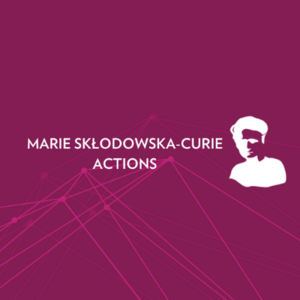

Did you know that the Marie Sklodowska Curie "Postdoctoral Fellowships " funding scheme allows you to carry out a research stay of 12 to 24 months in a non-academic structure? Discover the scheme and apply before September 11, 2024!
About postdoctoral fellowships
The Marie Sklodowska Curie Actions (MSCA) offer postdoctoral grants to researchers who wish to boost their careers by working abroad or prepare their return to Europe. Host organisations can be non-academic organisations: companies of all sizes and sectors, museums, NGOs, associations, foundations...
There are two types of fellowships:
Both types of fellowships may also include short-term secondments anywhere in the world during the fellowship (except during the return phase of a Global Fellowship).
This action is for researchers from across the world.
Applicants need a doctoral degree and must have a maximum of eight years experience in research, from the date of the award of their PhD degree.
MSCA Fellowships have a specific mobility rule: you cannot have spent more than 12 month in the last 3 years in the country for which you want to apply for.
All research areas can be funded. MSCA Fellows come from a wide variety of disciplines – from physics to linguistics, and from health-sciences to mathematical modelling.
The grant provides an allowance to cover living, travel and family costs. In addition, the EU contributes to the training, networking and research costs of the fellow, as well as to the management and indirect costs of the project.
The following documents have to be provided:
The proposal is written jointly with your future host organisation.
As any other EU-funding, your grant proposal will be evaluated according to the following three main factors:
Your proposal must explain how your project is going to help you to develop your skills and knowledge and how it will have an impact on your career development. Evaluators pay a specific attention to the outreach activities implemented during your project.
Because your proposal won’t be necessary evaluated by experts from the same specific field than you, explain your project in a way non-experts can understand. Showcase the red thread of your proposal by describing the objectives and how you will meet them; explain what impact your project will have for the society.
Successful applicants evaluate the time for writing the proposal by 2-3 months.
If you wish to host an international researcher and co-implement a project, consider the MSCA individual fellowships.
The Marie Skłodowska-Curie Actions (MSCA) program offers non-academic organizations (SMEs, large enterprises, foundations, associations, museums, etc.) a unique opportunity to enhance their competitiveness and innovation capacity by collaborating with internationally renowned researchers.
By hosting an MSCA fellow funded by the European Commission, you can benefit from the advanced scientific expertise and specialized skills of the researchers.
By participating in this program, host organizations demonstrate their commitment to excellence and innovation, thereby strengthening their position in the international market.